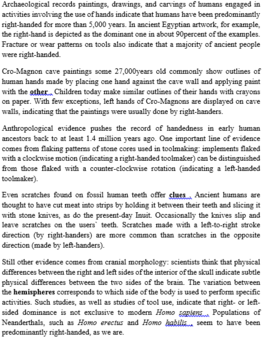Read the following passage and mark the letter A, B, C or D on your answer sheet to indicate the correct answer to each of the questions.
It is difficult to write rules that tell exactly when we should apologize, but it is not difficult to learn how. If we have done something to hurt someone’s feeling or if we have been impolite or rude, we should apologize. An apology indicates that we realize we have made a mistake, and we are sorry for it. It is a way of expressing our regret for something. When we apologize, we admit our wrongdoing, usually offer a reason for it, and express regret.
The simplest way to apologize is to say “I’m sorry”, but often that is not enough. Let’s take a common situation. Mario is late for class and enters the classroom, interrupting the teacher in the middle of the class. What does he do? The most polite action is usually to take a seat as quietly as possible and apologize later. But if the teacher stops and waits for him to say something, he could apologize simply “I’m sorry I’m late”, ask permission to take his seat, and sit down. Naturally, more than this, a reason for the tardiness, is needed, but this is not the time or the place for it because he has already caused one interruption and doesn’t need to make it any longer or worse than it already is.
The word “rude” in paragraph 1 could be best replaced by ________.
A. incorrect behavior
B. polite
C. correct behavior
D. good behavior


Đáp án A
Từ “rude” ở đoạn 1 có thể được thay thế bởi __________
A. cách hành xử sai lệch B. lịch sự
C. cách hành xử đúng D. cách hành xử tốt
Rude (adj): thô lỗ (đây là cách hành xử sai lệch), vậy chọn A.